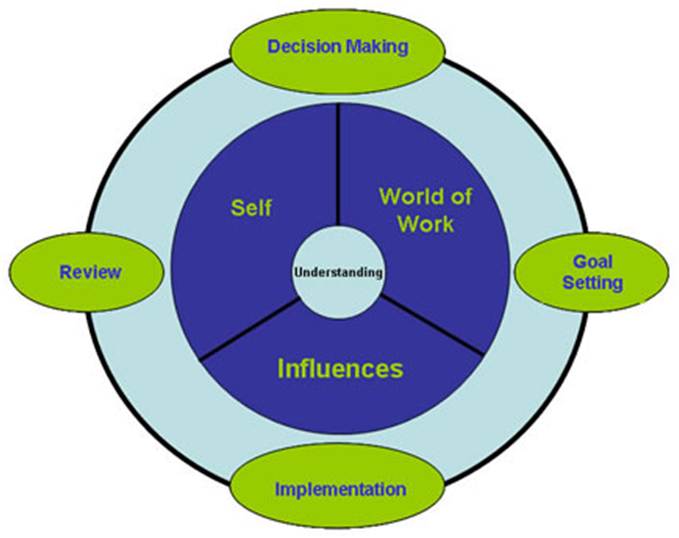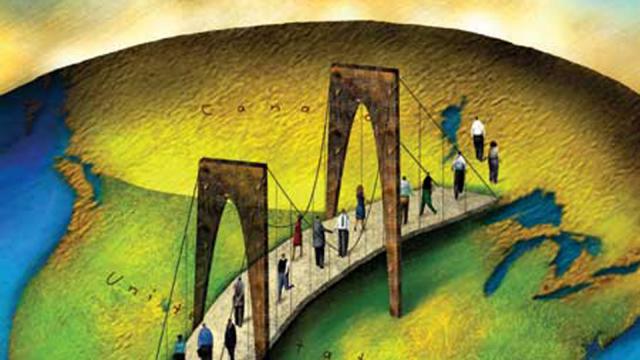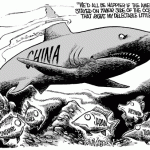Posts by John Dudovskiy

The difference employee recruitment and selection needs to be specified in an appropriate manner. Recruitment can be defined as “the process of confirming the need to employ fresh staff, locating where potential recruits exist and attracting appropriate application for employment” (Akwetey, 2011, p.18). In simple terms, employee recruitment is Recruitment process of staff and volunteers is going to comprise the following five stages: Stage One: Recruitment Planning The first stage in recruitment process relates to identification of skills requirements and clarification of numbers of staff and volunteers needed. Six cuisines – Chinese, Japanese, Italian, Spanish, English and Indian cuisines are going to be represented at the event, and accordingly one chef needs to be employed for each cuisine. There is a vacancy for a member of staff to sell food and ingredients for each cuisine during the event. Moreover, all five group members are going to participate as volunteers and additional volunteers are also welcomed. Stage Two: Identification of Recruitment Sources Generally, recruitment sources can be internal and external (Werner et al., 2012). Internal source of recruitment relates to finding candidates within the company, whereas external source of recruitment relates to recruitment of individuals outside of the organisation. Internal source is going to be explored for recruitment and potential members of staff will be sought amongst second and third year students within the University. Stage Three: Candidate Generation Petition is planned to be launched on Facebook social networking website and applications are going to be attracted from candidates amongst second and third year students studying in University. Dedicated Facebook page is going to explain job specification and candidate requirements for chefs such as cooking experience of at least three years, being passionate about food, possessing advanced communication and interpersonal skills etc. in a detailed manner. Job requirements for…
By John Dudovskiy
Category: HRM

People who plan their career years in advance and make efforts to make them happen achieve far more than those who do not have a long-term plan and make their career decisions dictated only by immediate benefits. It’s better to be proactive for an individual to assess his interests, strengths, weaknesses and realistically evaluate his options and make relevant plans, rather than being reactive and end up in an employment where the individual’s true potentials are not realised for many different reasons. This article illustrates my personal career plan in detail in my chosen field of professional interest – marketing, and lists steps I am planning to undertake to progress to my dream job, anticipating possible challenges, analysing alternative progressions and describing preventive actions. The article also describes career planning methodology, marketing field in general and necessary KSAs to be successful in this field. My personal development plan is provided in the article along with my SMART objectives describing how I am planning to prepare myself for each step which eventually will lead me to my dream job – marketing executive. Dream Job – Marketing Executive Marketing executives promote products, services or ideas by developing marketing strategies and campaigns. They are closely involved in public relations, planning, research, product development, participating in events and organising them. This role is fascinating to me because it provides two job elements which I find exciting: meeting and communicating with people, and seeing the immediate and long-term results of your work. Marketing executives have a wide range of responsibilities and it depends mainly on the sector and the size of the company. The job of a marketing executive includes production of marketing materials, managing the marketing budget, organizing and attending to events, exhibitions etc., evaluating the efficiency of marketing campaigns, conducting market research, and…
By John Dudovskiy
Category: Personal reflection & development

Social security refers to the variety of forms of personal financial assistance to members of society. Being one of the core responsibilities of state, the provision of social security may be granted as a means of dealing with poverty, as a social protection due to financial vulnerability to circumstances, as redistribution tool of income, and as a means of expression of solidarity (Spicker, 2014, online). Major types of social security benefits include social insurance, benefits given to low-income individuals and families, disability benefits, pensions for aged people and discretionary benefits. In UK in particular social security policies are developed and implemented within the scope of Beverage Scheme which is associated with National Insurance accounts for each citizen. Core six principles of Beverage Scheme and National Insurance consist of comprehensiveness, categorisations of insurance, flat nature of benefits and contributions rate, the principle of adequacy and unified administration of National Insurance (Spicker, 2013, online). Additional social policy programs and initiatives aimed at facilitation of social security in UK include, but not limited to Guarantee Credit, Savings Credit, and Child Benefit. Development of social policies in relation to social security of citizens in modern times is associated with a substantial challenge which relates to the recent global economic crisis of 2007 – 2009. In other words, the crisis has necessitated budget reductions in many countries with obvious negative effects on the volume of social security spending, and this result in significant social policy problems. To be more specific, contemporary social policies in relation to social security need to be developed by governments in highly cost-effective manner, and the necessity behind social security reductions need to be communicated to citizens in an effective manner through the application of various communication channels in order to maintain popularity of the government. This task is highly difficult…

Family as a cell of society plays an integral role in facilitation of its functioning in an effective manner. As the most basic unit in society, families can have preventive impact in relation to a wide range of issues such as drug addiction, teenage pregnancy, dealing with stress etc. In other words, neglecting the value of families as the smallest and ancient social institution in society can have highly negative implications for the society at various levels, as well as, having negative effects on the state of national economy in direct and indirect manners. Alternative basic units in society to traditional families include people living alone, single parents, different forms of collective living arrangements, and others. However, the majority of sociologists adopt a skeptical approach about the levels of positive contribution of alternative basic units in society as opposed to traditional families consisting of two parents and one or more children for justified reasons. Escalating role of family as a social structure impose significant challenges to benefits derived from family social institution to the society in the future. A set of factors impacting the decline of popularity of families mainly in developed countries such as UK and USA in a traditional sense with two parents and one or more children include certain demographic tendencies such as ageing population, increasing numbers of couples without children, and household fission i.e. “the tendency for households to split, because of divorce and earlier independence for children” (Spicker, 2014, online). Moreover, a tendency of prioritising career over family amongst young people possesses further threat to the role of families and associated social and personal values in the future. It is important for a state to assume an instrumental role in terms of promoting and reinforcing formation of families in traditional sense in society. This role…
By John Dudovskiy
Category: Politics

Major tendencies in the 21st century such as intensifying levels of globalisation, increasing levels of multiculturalism in workplaces, increasing threats of international terrorism, rapid innovations in information technology and others have direct and indirect implications on various processes in society, and their analysis from sociological viewpoint is necessary in order to assess these implications in a holistic manner. Changes in the nature of work include increasing level of informality of organisational culture, increasing popularity of alternative working patterns and decline of popularity of lifelong employment for a single organisation have great potential to contribute to human well-being in various levels. Theoretical perspectives to sociology can be divided into three categories: functionalism, conflict and interactionist. Benefits of changing nature of work to human well-being can be effectively explained through the lenses of each of these perspectives. Changing nature of work related to increasing popularity of alternative working patterns such as part-time, flexitime, telecommuting, job sharing and compressed workweek have a great potential to improve the levels of work-life balance for many people. Sociology studies rationale behind human behaviour, and from this perspective rationale behind increasing numbers of people preferring engagement in alternative working patterns can be explained as the willingness to improve the levels of their work-life balance. Businesses can reduce the levels of operational costs by adopting alternative working patterns and this relates to conflict perspective in sociology to a certain extent. In other words, the conflict perspective to sociology and related theories which are mainly derived from teachings of Karl Marx focus on competition between various groups for resources, as well as, power and influence. According to this approach, cost reduction by businesses achieved by adoption of alternative working patterns can be used as a source of competitive advantage to compete with other businesses in the global marketplace. Decline…
By John Dudovskiy
Category: HRM

In simple terms, sociology can be defined as interaction between individuals and groups. Sociology is a broad area and encompasses a wide range of topics and issues such as culture, interactions between people, levels of inequality in a society, socialisation etc. and impact of all of these on human behaviour and thinking. This essay focuses on a narrow segment of sociology, which is explanation of changing nature of work through sociology. The approach to sociology can be divided into two groups: micro and macro. Micro-sociology focuses on study of behaviour in various situations in a daily life. Macro-sociology, on the other hand, has a broader scope and employed to explain the various aspects of broad social systems. Changing nature of work can be explained from both perspectives – micro-sociology and macro-sociology. From micro-sociology perspective, changes in the nature of work as described above have certain implications for employees in individual and personal levels such as possibility to achieve greater levels of work-life balance in multiple ways. Alternatively, from macro-sociology perspective, national and global implications of changes in the nature of work are assessed such as resulting changes in cultural values, competitive advantage to be gained by local producers due to cost reductions, and others. Relatively recently the notion of meso-sociology has also been introduced and this refers to “analysis of social phenomena in between the micro and macro levels” (Doda, 2005, p.17). Moreover, embracing of alternative working patterns is becoming a popular pattern of social behaviour. Distinctive features of this behaviour include extensive use of internet for a wide range of purposes and social mobility. Popular theoretical approaches to sociology include Functionalism, Marxism, Feminism, Post-Modernism, Theory of Rational Choice and others and each of these approaches is a broad topic on their own accounts. Nevertheless, assessment of implications of changing…
By John Dudovskiy
Category: HRM

The last several decades have witnessed gradual and dramatic changes in the nature of work due to a number of reasons that include, but not limited to intensifying level of competition in marketplace, developments in information technology and other technological developments, increasing forces of globalisation and certain aspects of demographic changes. Increasing popularity of alternative working patterns such as part-time working, flexitime employment, telecommuting, job-sharing and compressed workweek marks the most important change in the nature of work in the 21st century. It has been estimated that “currently around 29 per cent of UK employees work part-time or in some other form of flexible working pattern” (Holbeche, 2013, p.58). Part-time working is not a new practice in modern times; however, the popularity of part-time employment has increased during the last couple of decades due to attempts to improve the levels of work-life balance and a set of other reasons discussed below in a greater details. Flexitime employment as a different version of alternative working patterns “specifies core hours when people must be on the job, with flexible starting and finishing times as long as required total hours are worked” (Swanepoel et al, 2008., p. 217 as taken from Bartol et al., 2008, p.413) Telecommuting, on the other hand, can be explained as “to work at home using a computer connected to the network of one’s employer” (Free Dictionary, online, 2014) and it offers the advantages of working from the comfort of home. Job sharing involves roles and responsibilities of a single position being assumed by two or more employees so that each employee has extra free time to devote to pushing hobbies, spending time with the family and other activities of their choice. Compressed workweek working pattern permits employees to complete required hours for the week in less than traditional…

With the increasing forces of globalisation the need for trade regulation in an unbiased and objective manner increases. This role has been assumed by World Trade Organisation (WTO) and its functions include administration of trade agreements, serving as a forum for trade negotiations, dealing with trade disputes between its members, and monitoring policies of its members related to trade. Established in January 1, 1995, WTO comprises 159 members and it is based in Geneva, Switzerland (Annual Report, 2013). There are contradicting assessments of WTO performance in terms of regulating trade between counties in an effective manner. You can read more scope, contribution and criticism related to WTO here. On one hand, WTO has been praised for such positive impacts as stimulating economic growth and increasing the level of employment, encouraging good governance practices, contributing to peace and stability and settling trade disputes amongst its members (Ahern and Fergusson, 2010). On the other hand, WTO critics argue that the organisation has made a counter-productive impact on development of a range of its members, and it also has been blamed for neglecting environmental issues. Moreover, WTO has been criticised on the grounds of political bias for serving as an instrument at the hands of its few hegemonic members. Moreover, there are other international organisations which are parts of United Nations Organisations (UN) such as World Bank, and International Monetary Fund (IMF), that have certain impacts in international trade practices. UN in general, and its Economic and Social Council in particular can be specified as another international organisation that does have impact on trade regulation between countries. Comprising 54 members for three-year terms, the Economic and Social Council aims to promote international cooperation in order to achieve economic and social development. Millennium Development Goals is one of the most noteworthy economic initiatives proposed…

In line with the advantages of free trade discussed here, there is a set of objections to free and these objections can be represented through the following four points. Firstly, free trade is criticised due to its perceived disadvantages to local producers. The concept of free trade promotes open competition without barriers in the global scale. Thus, companies from abroad with strong competitive edge may present serious threat to the levels of revenues of local businesses. However, this threat can be used as a positive factor as well, in terms of motivating local producers to innovate and search for additional sources of competitive edge in creative ways. From this perspective, local producers need to be assisted by government through building effective infrastructure for competition rather than being protected from foreign competitors limiting their motivation to innovate. Secondly, free trade is blamed for causing trade deficits with detrimental impacts on national economy. Specifically, trade deficit is an absence of balance between imports and exports and reducing the levels of trade deficits is one the main macroeconomic goals of the government. Trade deficit between US and China has been estimated to be as much as USD 40.6 billion (Crutsinger, 2014, online), and a range of economists point to this number as one of the main reasons for severe economic issues in the US. At the same time, counter-argument can be formulated in a way that “a growing trade deficit, despite its misleading name, is a good for the economy. It is typically a signal that global investors are confident in America’s future” (Boudreaux, 2014, online). In other words, there is a positive correlation between trade deficit and the levels of investment in the national economy from abroad, and these investments have great potential to revive national economy. Thirdly, free trade is criticised for…

Free trade can be defined as “a policy by which a government does not discriminate against imports or interfere with exports by applying tariffs (to imports) or subsidies (to exports)” (Britannica, 2014, online). In simple terms, free trade can be explained as an absence of government intervention to the practices of selling to and buying from another country. Promoted by famous economist Adam Smith and David Ricardo, perceived advantages of free trade include benefits to be gained from specialisation practices engaged by countries according to their competitive advantages. This benefit based on theoretical frameworks of absolute advantage and comparative advantage. Specifically, according to the theory of absolute advantage proposed by Smith (1976), countries are perceived to have absolute advantage in producing a product if the production is facilitated in the most efficient way than other countries. Comparative advantage proposed by Ricardo (1817), on the other hand, refers to “the ability to produce a specific product more efficiently than any other product” (Pride et al., 2011, p.70). According to theories of absolute advantage and comparative advantage focus on manufacturing products that can be produced more efficiently than other countries and trading these products for other products with different countries generates more economic gain and value compared to attempts to diversify production within a single country. A basic classical example of trade of two products between two countries found in the most economics textbooks illustrate the advantage of free trade in the most effective manner. Moreover, free trade encourages competition in the market, motivating local producers to find and utilise sources for competitive edge on a constant basis, and high level of competition in the market offers benefits to consumers in terms of more variety of products and services, higher quality, and competitive prices. Another advantage of free trade can be specified…
